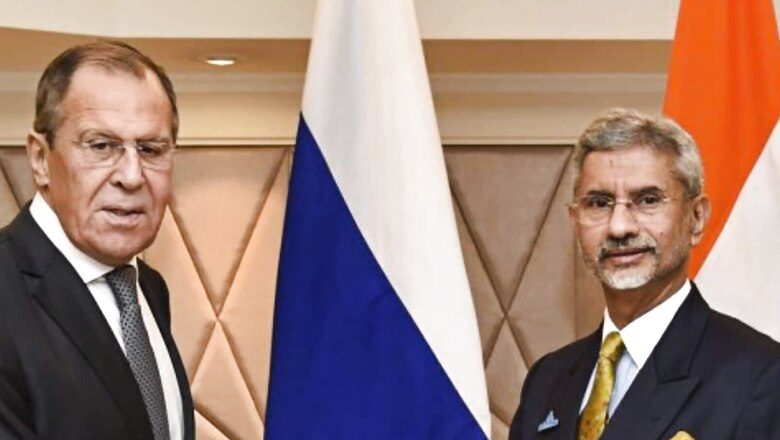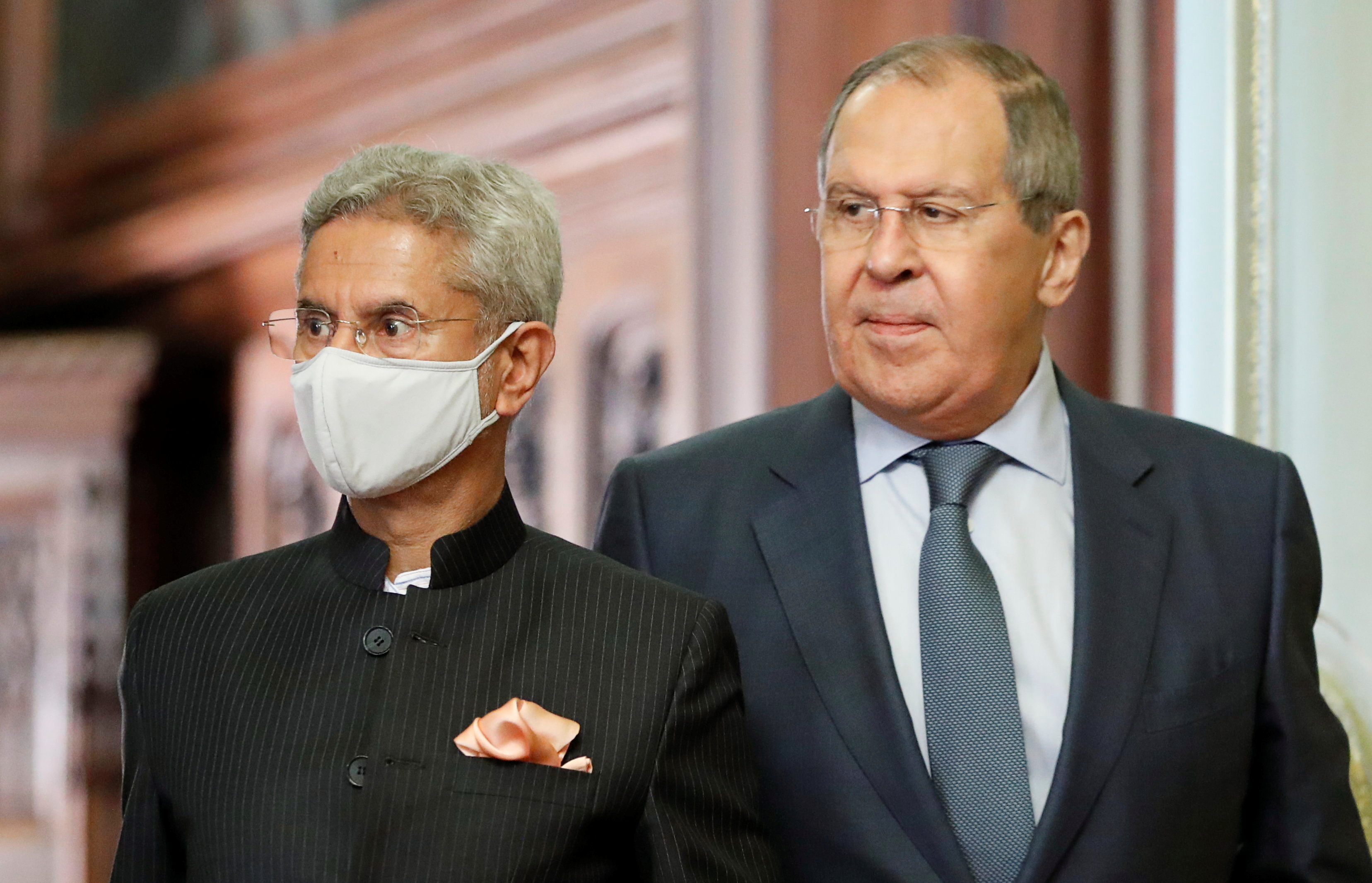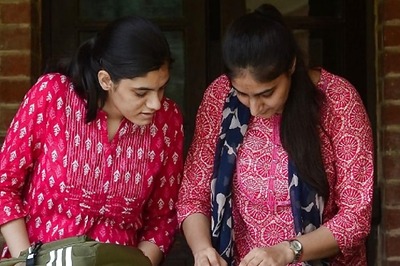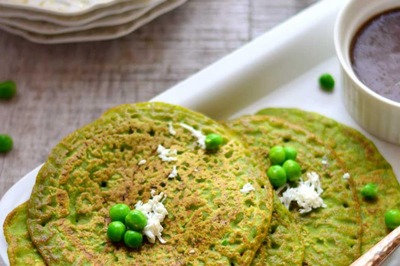
views
In the opening remarks by S Jaishankar at the meeting with Russia’s Foreign Minister Sergey Lavrov on Tuesday, the External Affairs Minister said the talks would be devoted to the nations’ bilateral cooperation. But, amid high anticipations, Jaishankar also made a reference to the Ukraine conflict.
“Our meeting today, is of course, devoted to assessing the state of our bilateral cooperation; exchanging perspectives on the international situation and what that means to our respective interests. Where bilateral ties are concerned, you would agree that it is our objective today to fashion a contemporary, balanced, mutually beneficial, sustainable and long-term engagement. Especially as our economic cooperation increases, this is a significant imperative. We would be discussing how our shared goals are best achieved,” Jaishankar said.
Talking about the issues being faced by global economies, Jaishankar made a mention to Ukraine as well. Experts have wondered whether India will use its position of being ‘friend to both the East and West’ to help broker peace amid the Ukraine war.
“Where the international situation is concerned, the last few years of the Covid pandemic, financial pressures and trade difficulties; these have taken a toll on the global economy. We are now seeing the consequences of the Ukraine conflict on top of that. There are also the more perennial issues of terrorism and climate change, both of which have a disruptive impact on progress and prosperity. Our talks will address the overall global situation as well as specific regional concerns,” he said.
Why the Meeting?
Union External Affairs Minister S Jaishankar is in Russia for two days, where he is meeting with Deputy Prime Minister and Minister of Trade and Industry Denis Manturov and Russian Foreign Minister Sergey Lavrov to discuss economic cooperation. Jaishankar’s visit coincides with the ongoing Russia-Ukraine conflict and comes at a time when the West has imposed a number of sanctions on Russia.
The EAM’s visit is also significant because it occurs just days before the G-20 summit in Bali, which is scheduled for November 15-16. Amid the visit, speculations are afoot on the issues that will be discussed by Delhi and Moscow. India has been billed as a potential mediator between Russia and Ukraine even as the conflict stretches on, affecting world economy, energy and food supplies. His last visit to Moscow was in July 2021.
India has yet to condemn Russia’s invasion of Ukraine, arguing that the crisis must be resolved through diplomacy and dialogue.
Official Purpose of the Visit
Officially, Jaishankar will travel to Russia on Monday to co-chair a meeting of the bilateral Inter-Governmental Commission on Trade, Economic, Scientific, Technological, and Cultural Cooperation (IRIGC-TEC) with Russian trade minister Denis Manturov, as well as to meet with his Russian counterpart Sergey Lavrov. The meetings are scheduled for Tuesday, reports said.

‘A Friend to Both East & West’
A report by the New York Times, speculating on whether India will ‘help broker peace in Ukraine’ claimed that Delhi had quietly assisted in pivotal moments of the conflict. While the Ministry of External Affairs has not openly disclosed any such attempts, Prime Minister Narendra Modi at the earlier-held SCO summit told Russian President Vladimir Putin: “Today’s era isn’t of war and I’ve spoken to you about it on the call. Today we’ll get the opportunity to talk about how can we progress on the path of peace. India-Russia has stayed together for several decades.”
"Today's era isn't of war & I've spoken to you about it on the call. Today we'll get the opportunity to talk about how can we progress on the path of peace. India-#Russia has stayed together for several decades": PM Modi in bilateral meet with Russian President Putin#SCOSummit pic.twitter.com/Fsl6CtX6gO— DD News (@DDNewslive) September 16, 2022
Modi was praised by US media and western countries for his stance on the conflict. India has largely maintained a balanced approach, as Moscow remains a crucial partner to Delhi.
As a member of the United Nations Security Council, India had abstained from a vote condemning Moscow’s “annexation” of Ukrainian territory. Modi had also told Ukrainian President Volodymyr Zelenskiy that there was “no military solution” to the conflict, just as the Ukrainian army was advancing across parts of northeastern and southern Ukraine. On India’s approach, Jaishankar has said before, “we draw our conclusions and make our assessments. … We have a decent sense of what is in our interest and know how to protect it and advance it.”
What MEA Has Said
Addressing a question on the Ukraine conflict ahead of Jaishankar’s visit, MEA spokesperson Arindam Bagchi said India has always emphasized on the need to return to diplomacy and dialogue to resolve it, adding, “I am sure that the external affairs minister would certainly be reiterating it.”
“I cannot pre-judge what will be the discussions,” he said, noting that India is “looking at the economic elements” and also an exchange of views and discussions on “political developments”.
Our position on Ukraine- Russia conflict has always been clear, we want dialogue to focus on bilateral, regional and global issues & that is what, I think, our external Affairs minister will be discussing: MEA Spox Arindam Bagchi on EAM S Jaishankar's visit to Russia pic.twitter.com/UYdoahvdvB— ANI (@ANI) November 3, 2022
Bagchi said the visit will be in continuation of the regular high-level dialogue between the two sides.
Asked about Russia agreeing to rejoin a UN-backed agreement to allow the export of grain from Ukraine via a Black Sea corridor, Bagchi did not give a direct reply but said any effort to address the global food security challenge is a welcome move. “We have been talking about the impact of the high prices of fertilisers, food and energy affecting countries around the world particularly the developing world and anything that helps that process in increasing the availability and reducing the cost of food etc is a welcome development,” he said.
The West’s Disquiet
In the last few months, India has increased the import of discounted crude oil from Russia notwithstanding increasing disquiet over it by several Western powers. With this, Moscow is now not just an important Defence partner to Delhi, but also a crucial oil supplier.
Reports said Sunday that Russia had become India’s top oil supplier in October, surpassing traditional sellers Saudi Arabia and Iraq, according to data from energy cargo tracker Vortexa.
Russia, which made up for just 0.2 per cent of all oil imported by India in the year to March 31, 2022, supplied 935,556 barrels per day (bpd) of crude oil to India in October — the highest ever. It now makes up for 22 per cent of India’s total crude imports, ahead of Iraq’s 20.5 per cent and Saudi Arabia’s 16 per cent. India’s appetite for Russian oil swelled ever since it started trading on discount as the West shunned it to punish Moscow for its invasion of Ukraine.
What Putin Has Said Before Jaishankar’s Visit
On the occasion of the Russian Historical Society’s 10th anniversary on National Unity Day on Friday, Putin praised India’s growth story and described Indians as “very talented” and “purposeful” people who will help the country achieve outstanding results in its development.
“Let’s take a look at India,” he said in a speech originally delivered in Russian. “Outstanding results will be achieved by highly talented, purposeful individuals with a strong desire for internal development. There is no doubt that India’s population of nearly 1.5 billion people will achieve outstanding results in its development,” Putin said, according to a Kremlin press release in Russian, PTI reported.
With inputs from PTI
Read all the Latest Explainers here




















Comments
0 comment